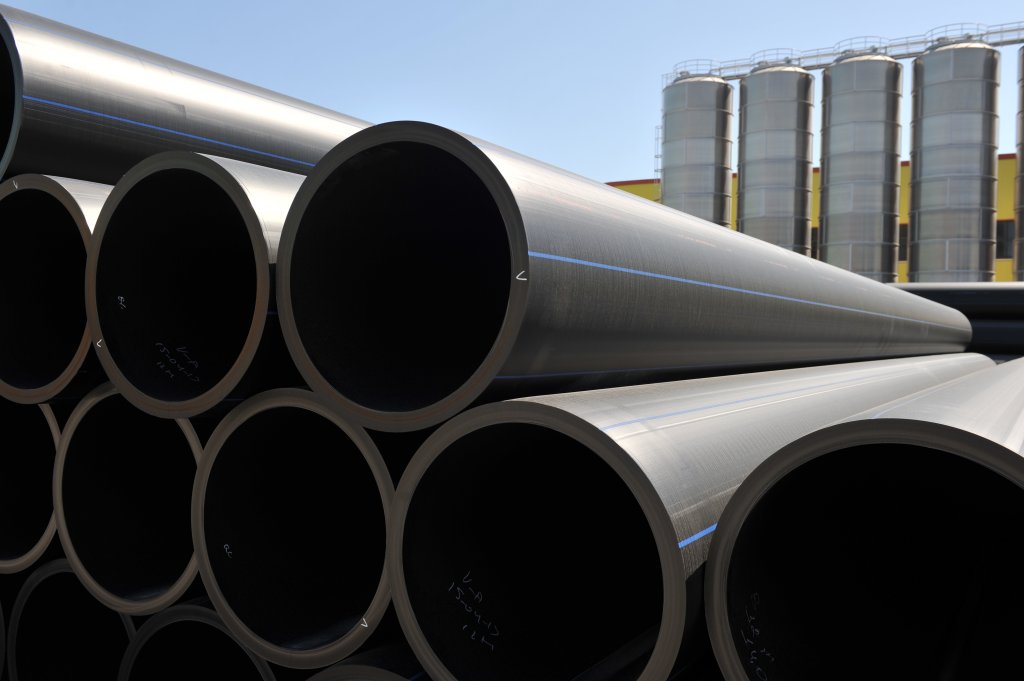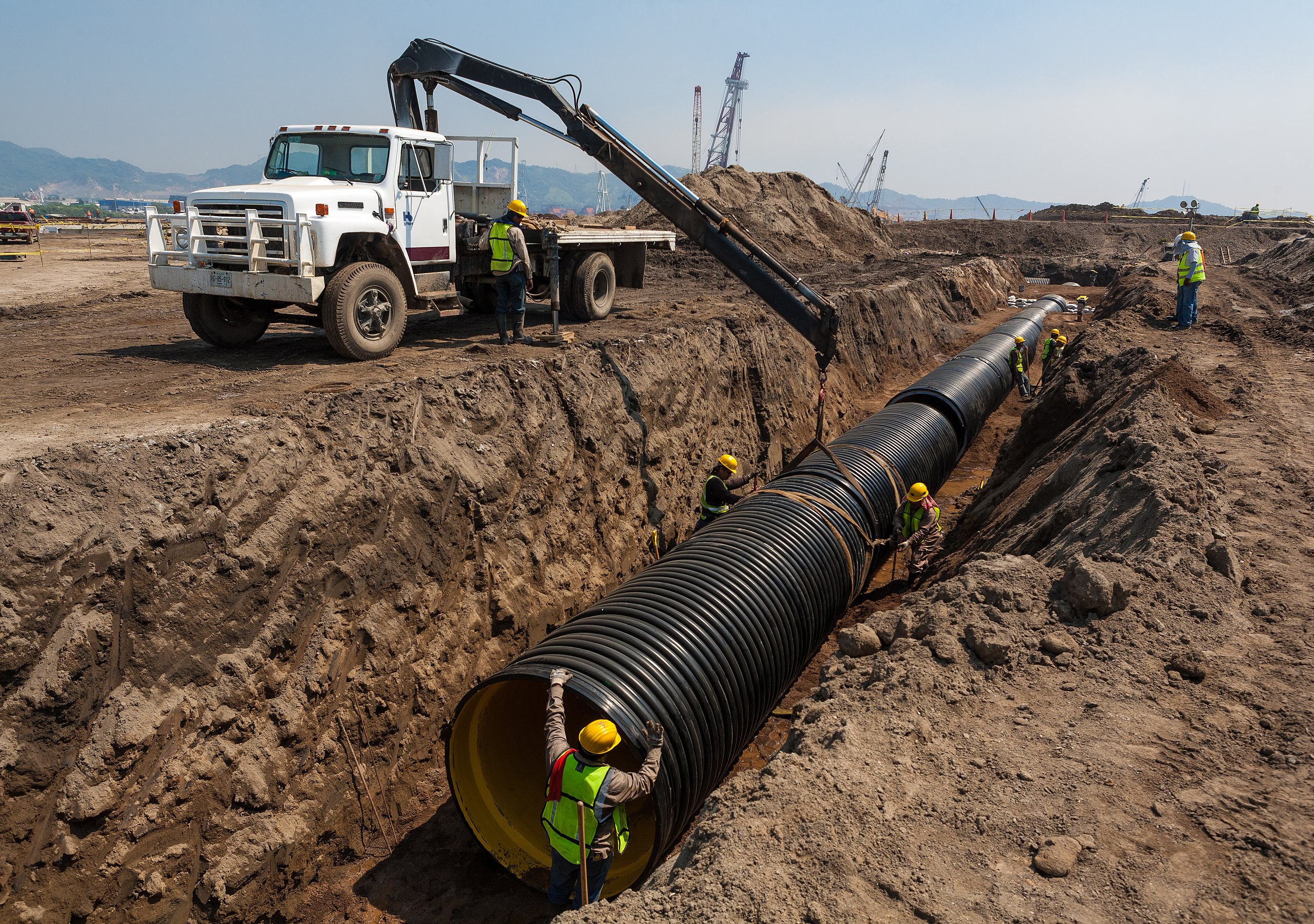American Plastics HDPE Pipe for Oilfield: Efficiency in Harsh Environments
Wiki Article
A Comprehensive Overview to the Various Uses HDPE Pipe in Building and Industry
HDPE pipelines have arised as a pivotal part in contemporary construction and commercial applications. Their distinct homes, such as resistance to rust and lightweight style, make them suitable for a broad variety of usages. From water system systems to farming irrigation, HDPE pipelines use options that enhance performance and sustainability. Comprehending their varied applications is vital for experts seeking to enhance facilities. What specific advantages do these pipelines offer each industry?Water Supply and Distribution Systems
Water supply and distribution systems are important parts of urban facilities, commonly relying upon high-density polyethylene (HDPE) pipes for their resilience and effectiveness. These systems transportation drinkable water from treatment centers to customers, making sure access and safety. HDPE pipes are preferred for their resistance to corrosion, chemicals, and extreme temperatures, which boosts their long life and decreases maintenance prices. Furthermore, their light-weight nature enables easier setup and transport, making them ideal for numerous metropolitan and country applications.The versatility of HDPE pipelines enables them to be installed in tight spaces and around obstacles, reducing the need for considerable excavation (Midland TX HDPE Pipe Fittings in Stock). Their smooth interior surface minimizes rubbing losses, boosting water circulation rates. As cities proceed to grow, the need for trustworthy water systems raises, placing HDPE pipelines as a lasting service for contemporary facilities tasks. Their tried and tested performance history makes them a recommended selection amongst engineers and city planners alike
Wastewater Management and Therapy
Effective wastewater administration and therapy are essential for preserving public health and ecological high quality. HDPE pipes play an essential role in this procedure due to their sturdiness, resistance to corrosion, and ability to stand up to rough chemicals. These pipes are commonly made use of in various applications, including sewer system, stormwater water drainage, and wastewater therapy facilities. Their light-weight nature facilitates simpler setup and transport, decreasing labor prices and time.Furthermore, HDPE pipes have a smooth indoor surface area that decreases friction loss, advertising efficient flow rates. They are also much less prone to leakages and failures compared to standard products, making sure that impurities are had properly. Their versatility allows for adaptability in numerous soil conditions, making them ideal for varied ecological setups. As sectors increasingly focus on lasting methods, using HDPE pipes in wastewater management systems aligns with objectives for minimizing environmental impact and improving source recovery.
Agricultural Watering Solutions
In farming settings, efficient watering remedies are necessary for maximizing crop yields and taking care of water resources. HDPE (High-Density Polyethylene) pipelines play a crucial role in modern watering systems as a result of their longevity, adaptability, and resistance to deterioration. Their capability to withstand high pressures makes them optimal for both surface and subsurface irrigation applications, guaranteeing uniform water circulation throughout fields.Farmers can use HDPE pipes in drip irrigation systems, which provide water straight to plant origins, reducing wastefulness and advertising healthy and balanced development. In addition, these pipes are great site light-weight and very easy to mount, reducing labor prices and installation time. Their lengthy life-span and reduced maintenance requirements even more boost their allure in farming methods.
Additionally, HDPE pipelines are ecologically friendly, as they can be recycled and do not seep damaging chemicals into the soil. This makes them a lasting choice for farmers intending to take on environmentally friendly agricultural methods while taking full advantage of efficiency.
Industrial Applications and Processes
Versatility is a characteristic of HDPE pipelines, making them indispensable in numerous commercial applications and procedures. These pipelines are commonly utilized in chemical processing industries due to their superb resistance to a variety of harsh compounds. HDPE's lightweight nature, incorporated with high tensile strength, enables simple installation and long-lasting performance sought after environments.In the oil and gas field, HDPE pipes play an important duty in delivering hydrocarbons and gases, thanks to their durability and adaptability - hdpe pipe in stock Midland TX. In addition, they are employed in mining procedures for the transport of slurry and other materials, where typical piping systems may fall short
HDPE pipes are significantly used in producing centers for water supply reference lines and wastewater monitoring. Their ability to stand up to severe temperature levels and pressures makes them appropriate for a selection of industrial processes. Generally, HDPE pipelines contribute considerably to performance and safety across varied industrial applications.
Stormwater Monitoring and Drain Systems
Stormwater management and drain systems are important elements in urban infrastructure, developed to handle excess rains and reduce flooding risks. High-density polyethylene (HDPE) pipes are progressively used in these systems because of their longevity, adaptability, and resistance to deterioration. These pipelines efficiently carry stormwater away from populated areas, minimizing surface runoff and preventing waterlogging.HDPE's lightweight nature facilitates easier installment, minimizing labor costs and building and construction time. In addition, its resistance to chemicals and ecological stressors guarantees long life and integrity in different climates. In enhancement to standard drain applications, HDPE pipes are additionally used in ingenious solutions such as environment-friendly framework, which includes rain yards and absorptive sidewalks.

Frequently Asked Questions
How Does HDPE Pipe Compare to PVC Pipe in Cost?
Generally, HDPE pipeline often tends to be more costly than PVC pipeline as a result of its boosted resilience and flexibility. Long-lasting cost considerations, such as upkeep and lifespan, might favor HDPE in details applications.What Is the Life-span of HDPE Pipes Under Numerous Problems?
HDPE pipes usually have a life expectancy of 50 to 100 years, depending on ecological conditions, installment techniques, and usage. Factors such as temperature level, soil kind, and exposure to chemicals can significantly influence their durability.Can HDPE Pipes Be Recycled After Use?
Yes, HDPE pipes can be reused after use. The reusing process entails melting down the product, enabling it you can look here to be repurposed into brand-new products, thereby advertising sustainability and lowering environmental influence linked with plastic waste.Are There Any Kind Of Particular Installment Difficulties With HDPE Pipelines?
Setup obstacles with HDPE pipes consist of proper jointing techniques, making sure adequate trench problems, and managing thermal growth. Additionally, experienced labor is called for to deal with specialized tools, which can complicate the installment process in numerous environments.
What Accreditations Should I Search For When Acquiring HDPE Water Lines?
When buying HDPE pipes, one must seek accreditations such as ASTM, AASHTO, and ISO, which confirm quality and conformity with sector requirements, guaranteeing durability and efficiency in different applications. - Pipe Manufacturing Midland TXReport this wiki page